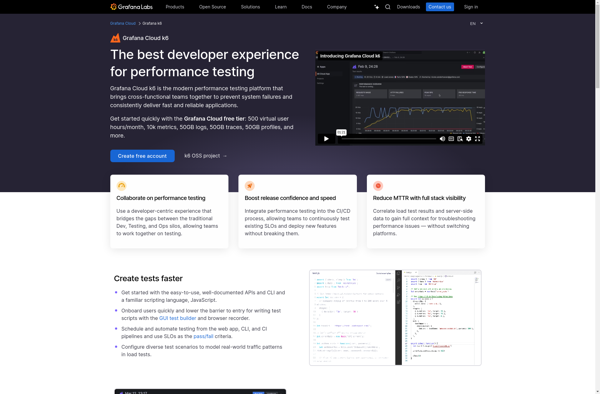Description: CloudTest is a cloud-based load and performance testing platform that allows users to simulate large volumes of traffic against web and mobile applications. It features an intuitive user interface, automation capabilities, and detailed analytics reporting.
Type: Open Source Test Automation Framework
Founded: 2011
Primary Use: Mobile app testing automation
Supported Platforms: iOS, Android, Windows
Description: k6 Cloud is a cloud-based performance testing platform that allows users to run large-scale load tests without setting up infrastructure. It offers features like test recording, automatic load distribution, analytics dashboards, and more.
Type: Cloud-based Test Automation Platform
Founded: 2015
Primary Use: Web, mobile, and API testing
Supported Platforms: Web, iOS, Android, API

